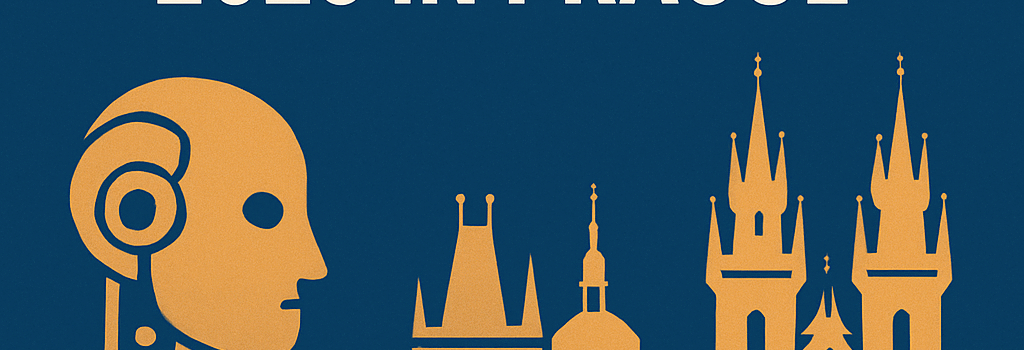Human-Aligned AI Summer School 2025 in Prague

Join us at the fifth Human-Aligned AI Summer School from 22nd to 25th July 2025 to explore cutting-edge AI alignment research.

Over four intensive days, the event features keynotes, technical lectures, hands-on workshops, and expert panels designed to deepen participants’ understanding of AI safety, risk mitigation strategies, and the theoretical underpinnings of aligned AI systems.
Apply now; applications are reviewed on a rolling basis to ensure timely feedback.
What to Expect
The summer school emphasizes robust pedagogical frameworks over cursory surveys of recent publications. Attendees are expected to have foundational knowledge in machine learning fundamentals (e.g., transformers, RLHF workflows, optimization objectives) and basic theoretical computer science concepts.
This year, the program is structured around three core pillars:
- Technical Alignment Research: In-depth sessions on mechanistic interpretability (circuit analysis using tools like EIGEN and PyTorch-based visualization libraries), scalable oversight techniques (synthetic model organisms, adversarial training protocols), and behavioral evaluations leveraging benchmark suites like BIG-bench and AdvGLUE. Recent results on reverse-engineering transformer heads and probing MLP layers will be discussed.
- AI Strategy & Systemic Alignment: Analytical lectures on forecasting AI timelines using quantitative models (e.g., discrete logistic growth, scaling laws), economic simulations of AI-driven markets, and governance frameworks inspired by international policy proposals. Panels will feature debates on multi-stakeholder coordination and gradual disempowerment risks in a post-AGI economy.
- Foundational Frameworks: Explorations of multi-agent cooperation protocols, bounded rationality models using satisficing algorithms, formal definitions of agency from decision theory, and emergent behaviors in population-based training. These sections draw on recent multi-agent reinforcement learning (MARL) papers and cooperative AI research from the Cooperative AI Foundation.
Deep Dive: Mechanistic Interpretability Techniques
Leading experts will guide attendees through code-level interpretability experiments. Utilizing libraries such as Captum and TransformerLens, participants will reconstruct semantic neurons, apply attribution methods like Integrated Gradients, and conduct activation patching. Case studies will include recent whitepaper findings on GPT-4’s internal goal representations.
Panel Insights: Governance, Policy, and Economic Models
A moderated panel featuring Dr. Jan Leike (DeepMind), Dr. Stuart Russell (UC Berkeley), and industry practitioners will dissect the latest AI governance proposals, including the EU’s AI Act and U.S. Executive Orders. Discussions will cover enforceable AI auditing practices, cross-border regulatory harmonization, and the role of open-source in safety.
Hands-on Workshops: Tools, Libraries, and Frameworks
Interactive sessions teach practical skills: building transparent RLHF pipelines with Ray RLlib, deploying safety blueprints via the OpenAI Safety Gym, and integrating model evaluation dashboards using Weights & Biases. Participants will collaborate on mini-projects tackling adversarial robustness and reward tampering detection.
Program Format
Each day combines keynote lectures, small-group breakout workshops, expert panels, and networking lunches. A detailed schedule will be published closer to the event—see the 2022 program for reference.
Speakers
- Lewis Hammond – Cooperative AI Foundation & University of Oxford
- Evan Hubinger (remote) – Anthropic Research
- Vojta Kovarik – Czech Technical University
- Jan Kulveit – ACS Research, Charles University
- Gavin Leech – University of Cambridge & Arb Research
Additional speakers and panelists will be confirmed; check the website for updates.
Networking & Collaborative Incubation
Structured networking events and hackathon-style brainstorming sessions foster cross-institutional collaboration. Attendees can pitch research ideas, form working groups, and access mentorship from senior scientists committed to accelerating safe AI development.
Logistics & Registration
The event will take place at the Czech Technical University’s historic Prague campus. Options for travel grants and subsidized accommodation are available for PhD students and early-career researchers. Registration fees include full access to workshops, lecture materials, and post-event video recordings.
Apply before slots fill up—applications are evaluated as they arrive.
Source: AI Alignment Forum